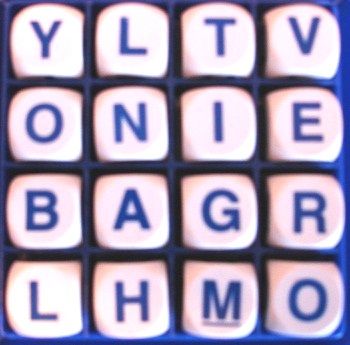I have seen a LOT of specious info here about case law in WA. frankly, it boggles my mind. that being said, anybody who makes legal decisions based on a post from an anonymous blogger ... well.. do the math
That being said, i am providing a link for an EXCELLENT resource for WA case law. this is the periodical that is produced by literally the most powerful public attorneys in WA state, and is required reading for any police officer in WA state that wants to keep up on case law.
THIS is a legitimate source.
Fwiw, i've read nearly every issue. i might have missed one or two. probably about 100 issues or so.
https://fortress.wa.gov/cjtc/www/index.php?option=com_content&view=article&id=137&Itemid=80
btw, here are some good terry cases
Illinois v. Wardlow, 528 U.S. 119 (2000) March ’00 LED:02 (U.S. Supreme Court holds that unprovoked, headlong flight at sight of police car by person in area known for heavy drug trafficking is “reasonable suspicion” under the “totality of the circumstances”)
State v. Doughty, 170 Wn.2d 70 (2010) Nov. ‘10 LED:04 (Where the sole apparent basis for police officers’ labeling of a house as a “known drug house” was the neighbors’ reports of heavy short-stay traffic to the house, a suspect’s less-than-two-minute visit to that “known drug house” at 3:20 a.m. by a suspect unknown to police officers did not provide reasonable suspicion of drug crime and hence did justify a stop of the suspect’s car)
Florida v. J.L., 529 U.S. 266 (2000) May ‘00 LED:07 (U.S. Supreme Court holds that anonymous phone call regarding young man in plaid shirt at bus stop with a gun failed to meet the “reasonable suspicion” test, and therefore seizure and frisk was unlawful)
State v. Hopkins, 128 Wn. App. 855 (Div. II, 2005) Oct. ’05 LED:09 (Where officers did not call back to get more details, citizen informant’s call on cell phone to report possible juvenile in possession of handgun was not shown, on the totality of the circumstances, to establish reasonable suspicion for Terry seizure of suspect, nor were there sufficient corroborating observations to support the Terry seizure)
State v. Almanza-Guzman, 94 Wn. App. 563 (Div. I, 1999) June ’99 LED:13 (Division One holds that officers did not have “reasonable suspicion” to stop a man known to be in possession of a gun and suspected of being in violation of the law requiring that an alien with a gun have an alien firearm license – facts (1) that suspect’s primary language appeared to be Spanish and (2) that alien firearm licenses are rarely issued did not justify seizure for investigation.)
Campbell v. DOL, 31 Wn. App. 833 (Div. I, 1982) Aug. '82 LED:04 (Conclusory statement to officer that driver of car going by is "drunk"
Law Enforcement Legal Update - 9 Updated through July 25, 2011
does not justify stop, nature of crime and alternative investigative options are factors in reasonableness-of-seizure determination)
State v. Anderson, 51 Wn. App. 775 (Div. III, 1988) Oct. '88 LED:10 (Known citizen's action of pointing out car and making weaving gesture justified stop)
State v. Jones, 85 Wn. App. 797 (Div. III, 1997) Aug. '97 LED:16 (Unknown driver of marked commercial vehicle was not a sufficiently reliable source, even though he had made an in-person report). But see State v. Lee, 147 Wn. App. 912 (Div. I, 2008) Feb. ’09 LED:11 (Corroborated citizen’s report constituted reasonable suspicion; Court questions part of the analysis in the Jones decision by Division Three)
State v. Stroud, 30 Wn. App. 392 (Div. II, 1981) Feb. '81 LED:05 (Late hour, high-crime area not enough to justify stop)
State v. Lyons, 85 Wn. App. 268 (Div. II, 1997) Aug. ’97 LED:18 (Holding that RCW 46.20.349 constitutionally authorizes stop of vehicle based on reasonable suspicion that registered owner of MV has revoked or suspended driver’s license). But see State v. Penfield, 106 Wn. App. 157 (Div. III, 2001) Aug. ‘01 LED:12, which holds that, while a MV stop to check for the registered owner was permissible under the Lyons-type facts, the officer was not permitted to extend the stop to ask for ID when the reasonable suspicion evaporated once the officer noticed that the driver could not be the person identified by records as the registered owner. Note also the McKinney decision below Part II.A.9., where the Washington Supreme Court ruled that random license checks for warrants and other information on registered owners of MVs are lawful.
State v. Barber, 118 Wn.2d 335 (1992) April '92 LED:02 (Officers should not make irrelevant statements about the person’s racial incongruity with the neighborhood)
State v. Mitchell, 80 Wn. App. 143 (Div. I, 1995) March '96 LED:09 (Holding dangerous suspect at gun point not necessarily an arrest; case also addresses "reasonable suspicion" question regarding a handgun that a citizen was carrying in his hand while walking in a residential area)
State v. Perea, 85 Wn. App. 339 (Div. II, 1997) June '97 LED:02 (Officer’s seven-day-old information about license suspension justified MV stop)
That being said, i am providing a link for an EXCELLENT resource for WA case law. this is the periodical that is produced by literally the most powerful public attorneys in WA state, and is required reading for any police officer in WA state that wants to keep up on case law.
THIS is a legitimate source.
Fwiw, i've read nearly every issue. i might have missed one or two. probably about 100 issues or so.
https://fortress.wa.gov/cjtc/www/index.php?option=com_content&view=article&id=137&Itemid=80
btw, here are some good terry cases
Illinois v. Wardlow, 528 U.S. 119 (2000) March ’00 LED:02 (U.S. Supreme Court holds that unprovoked, headlong flight at sight of police car by person in area known for heavy drug trafficking is “reasonable suspicion” under the “totality of the circumstances”)
State v. Doughty, 170 Wn.2d 70 (2010) Nov. ‘10 LED:04 (Where the sole apparent basis for police officers’ labeling of a house as a “known drug house” was the neighbors’ reports of heavy short-stay traffic to the house, a suspect’s less-than-two-minute visit to that “known drug house” at 3:20 a.m. by a suspect unknown to police officers did not provide reasonable suspicion of drug crime and hence did justify a stop of the suspect’s car)
Florida v. J.L., 529 U.S. 266 (2000) May ‘00 LED:07 (U.S. Supreme Court holds that anonymous phone call regarding young man in plaid shirt at bus stop with a gun failed to meet the “reasonable suspicion” test, and therefore seizure and frisk was unlawful)
State v. Hopkins, 128 Wn. App. 855 (Div. II, 2005) Oct. ’05 LED:09 (Where officers did not call back to get more details, citizen informant’s call on cell phone to report possible juvenile in possession of handgun was not shown, on the totality of the circumstances, to establish reasonable suspicion for Terry seizure of suspect, nor were there sufficient corroborating observations to support the Terry seizure)
State v. Almanza-Guzman, 94 Wn. App. 563 (Div. I, 1999) June ’99 LED:13 (Division One holds that officers did not have “reasonable suspicion” to stop a man known to be in possession of a gun and suspected of being in violation of the law requiring that an alien with a gun have an alien firearm license – facts (1) that suspect’s primary language appeared to be Spanish and (2) that alien firearm licenses are rarely issued did not justify seizure for investigation.)
Campbell v. DOL, 31 Wn. App. 833 (Div. I, 1982) Aug. '82 LED:04 (Conclusory statement to officer that driver of car going by is "drunk"
Law Enforcement Legal Update - 9 Updated through July 25, 2011
does not justify stop, nature of crime and alternative investigative options are factors in reasonableness-of-seizure determination)
State v. Anderson, 51 Wn. App. 775 (Div. III, 1988) Oct. '88 LED:10 (Known citizen's action of pointing out car and making weaving gesture justified stop)
State v. Jones, 85 Wn. App. 797 (Div. III, 1997) Aug. '97 LED:16 (Unknown driver of marked commercial vehicle was not a sufficiently reliable source, even though he had made an in-person report). But see State v. Lee, 147 Wn. App. 912 (Div. I, 2008) Feb. ’09 LED:11 (Corroborated citizen’s report constituted reasonable suspicion; Court questions part of the analysis in the Jones decision by Division Three)
State v. Stroud, 30 Wn. App. 392 (Div. II, 1981) Feb. '81 LED:05 (Late hour, high-crime area not enough to justify stop)
State v. Lyons, 85 Wn. App. 268 (Div. II, 1997) Aug. ’97 LED:18 (Holding that RCW 46.20.349 constitutionally authorizes stop of vehicle based on reasonable suspicion that registered owner of MV has revoked or suspended driver’s license). But see State v. Penfield, 106 Wn. App. 157 (Div. III, 2001) Aug. ‘01 LED:12, which holds that, while a MV stop to check for the registered owner was permissible under the Lyons-type facts, the officer was not permitted to extend the stop to ask for ID when the reasonable suspicion evaporated once the officer noticed that the driver could not be the person identified by records as the registered owner. Note also the McKinney decision below Part II.A.9., where the Washington Supreme Court ruled that random license checks for warrants and other information on registered owners of MVs are lawful.
State v. Barber, 118 Wn.2d 335 (1992) April '92 LED:02 (Officers should not make irrelevant statements about the person’s racial incongruity with the neighborhood)
State v. Mitchell, 80 Wn. App. 143 (Div. I, 1995) March '96 LED:09 (Holding dangerous suspect at gun point not necessarily an arrest; case also addresses "reasonable suspicion" question regarding a handgun that a citizen was carrying in his hand while walking in a residential area)
State v. Perea, 85 Wn. App. 339 (Div. II, 1997) June '97 LED:02 (Officer’s seven-day-old information about license suspension justified MV stop)


